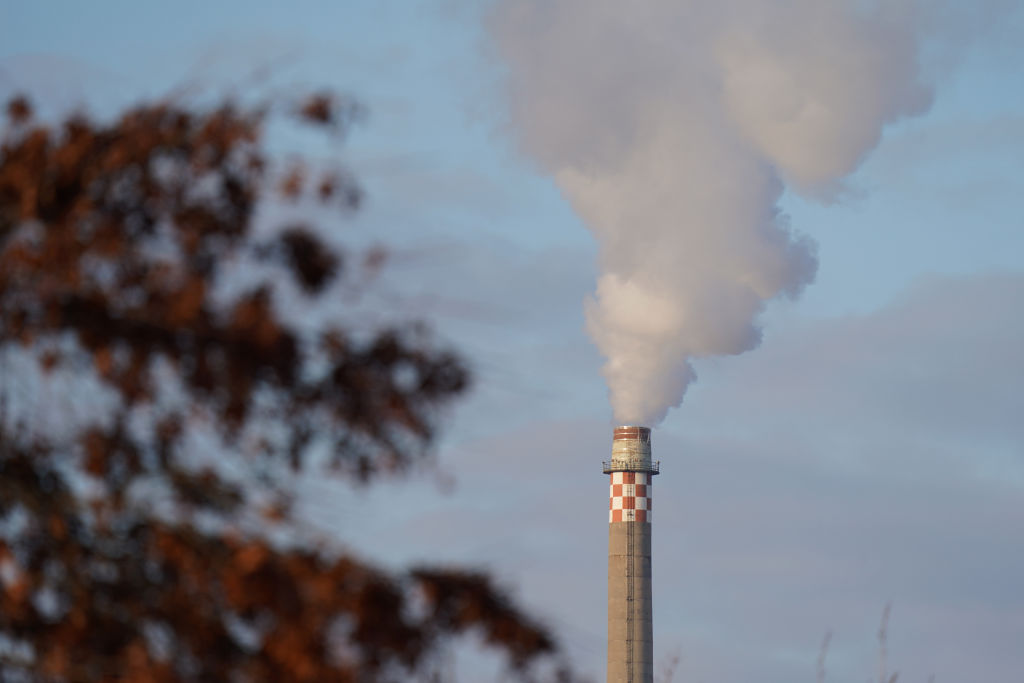
(Bloomberg) — The European Union unveiled how it plans to label investments in some gas and nuclear projects as sustainable, a move that has divided member states as the energy transition collides with political reality.
The European Commission on Wednesday announced technical amendments to its draft green-label criteria and proposed strengthening disclosure rules to ensure more transparency for investors. Yet the changes failed to alleviate concerns by environmental activists and some investors over the risk of greenwashing and diverting money away from renewables.
The measure will now be scrutinized by national governments, but those opposing it may find it hard to block, as EU law requires at least 20 member states to reject the plan for that to happen. The positions of member states vary: the Netherlands and Denmark oppose including natural gas because they don’t rely on such plants, while Germany—which is phasing out nuclear—criticized the green label for atomic power.
Read more: “A Huge Mistake.” The E.U. Jeopardizes its Climate Goals By Labeling Natural Gas as Green
The label system is being closely watched by investors to know what projects will count as green, and could potentially attract billions of euros in private finance to aid the shift to a low-carbon economy. The challenge is ensuring that the decision on nuclear and gas gets enough political support, at a time when some lobbies say those forms of energy shouldn’t be included at all.
“Today we’re taking another important step in the transition to climate-neutral economy,” Financial Markets Commissioner Mairead McGuinness said. “We need the private sector to play its full part and that’s where the taxonomy comes in.”
Some of the Commission’s proposals:
The EU in April announced a first set of criteria for green investments that will allow producers of rechargeable batteries, energy efficiency equipment, low-emission cars, wind and solar plants to earn a formal green label. It delayed the decision on nuclear and gas projects amid concerns about their inclusion.
Wednesday’s proposal underscored the divisions among countries and political parties. The EPP, the biggest group in the EU Parliament, acknowledged the role of nuclear as a low-carbon source of energy and said that natural gas used as a bridging fuel can help accelerate the shift to net-zero. The Greens said they would seek to muster a majority in the assembly to reject the regulation, which would classify those two energy sources as sustainable.
“The Commission is making a historic mistake with this proposal. It’s undermining the credibility of the whole taxonomy,” Bas Eickhout, Dutch vice-president of the group, told reporters. “With this, Europe is giving up its global leadership in green finance.”
It’ll be hard for the European Parliament and member states in the EU Council to reject the taxonomy proposal. Neither has the right to propose amendments—they can only block it if they get enough votes.
The Platform on Sustainable Finance, an advisory group consulted by the Commission, recently slammed the draft criteria for gas, saying it could undermine the EU’s target of net-zero emissions by 2050. It also said it’s unclear how the bloc will deal with possible environmental impacts from nuclear waste. A number of investors and lenders, including the European Investment Bank, said they’ll likely shun the technologies in portfolios.
“Even if something is in the taxonomy, such as natural gas or nuclear, it doesn’t mean we have to go and buy it,” said Isobel Edwards, a green bond analyst at NN Investment Partners. “Our clients expect certain types of investments, such as renewable energy, clean transportation and green buildings, so we couldn’t just start buying nuclear and natural gas.”
The EU wants to reach climate neutrality under its Green Deal, a sweeping overhaul that touches everything from energy supply to manufacturing to transport. Yet the recent energy crisis has highlighted the challenge of cutting dependence on fossil fuels and nuclear power that offers reliable supplies.
It’s up to member states to decide what energy sources they want to rely on at home—and they want different things.
For example, coal-dependent Poland says giving a temporary green label to certain gas projects could aid investment in cleaning up its heating system. France and the Czech Republic say nuclear has a key role in the clean transition as a stable source of low-carbon power.
Austria, a staunch opponent of atomic energy, said the EU us thwarting the Green Deal agenda.
“This is extremely unfortunate for the urgently needed development of a green-finance market,” Finance Minister Magnus Brunner said in a statement. “It is all the more evident that the Commission’s decision is short-sighted and incomprehensible, and that the market will show little understanding for it.”
—With assistance from Marton Eder.
More Must-Reads from TIME
- Breaking Down the 2024 Election Calendar
- How Nayib Bukele’s ‘Iron Fist’ Has Transformed El Salvador
- What if Ultra-Processed Foods Aren’t as Bad as You Think?
- How Ukraine Beat Russia in the Battle of the Black Sea
- Long COVID Looks Different in Kids
- How Project 2025 Would Jeopardize Americans’ Health
- What a $129 Frying Pan Says About America’s Eating Habits
- The 32 Most Anticipated Books of Fall 2024
Contact us at letters@time.com